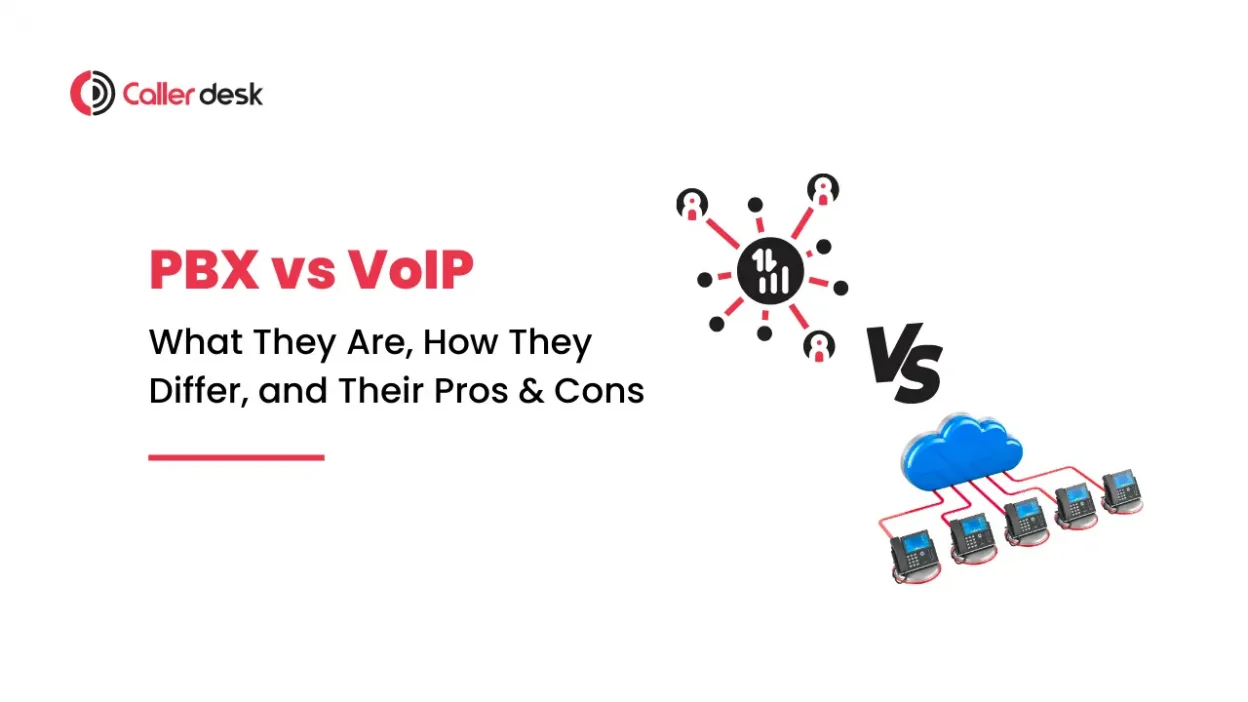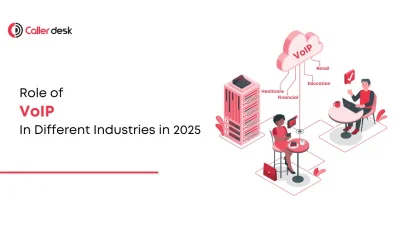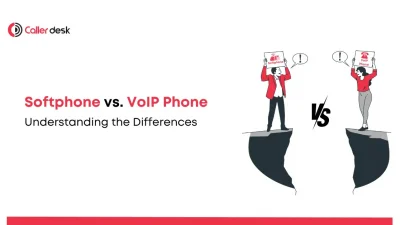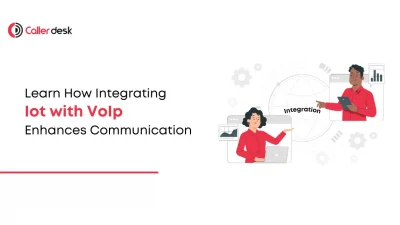Communication is the backbone of every business. Whether you’re answering customer calls, managing a team, or closing deals, having the right phone system makes all the difference.
Should we go with a traditional PBX system or switch to VoIP phone services? How do you choose the best one?
The big question businesses ask is:
Should we stick with a traditional PBX or switch to VoIP?
The answer depends on your needs, budget, and how you want to handle calls. But before making a decision, let’s break it down in simple terms.
What is PBX?
A PBX system (Private Branch Exchange) is a business phone system that helps companies manage both internal and external calls efficiently.
Traditional PBX systems use physical phone lines and are installed on-site. They’re reliable, secure, and work even without the internet-making them a great option for businesses that prefer a premise-based PBX setup.
What is VoIP?
VoIP (Voice over Internet Protocol) is a modern phone technology that lets you make and receive calls over the internet instead of traditional phone lines.
It works by converting voice signals into digital data and sending them online. The best part? You don’t need expensive phone hardware. With a VoIP phone system, you can make calls using:
- VoIP phones
- PCs or laptops
- Smartphones
As long as you have an internet connection, your VoIP business phone service keeps you connected—anytime, anywhere.
What is the difference between PBX and VoIP
Choosing the right business phone system can be challenging. Should you go with a PBX system or switch to VoIP?
Both have their pros and cons, but making the right decision can save you money, improve communication, and help your business grow.
Let’s break it down in simple terms so you can decide what works best for you.
1. Technology
A PBX phone system is a traditional phone setup that runs on physical phone lines and hardware installed on-site. It connects internal calls and routes them through the Public Switched Telephone Network (PSTN).
- Reliable and works without the internet.
- Needs dedicated hardware and phone lines.
A VoIP system (Voice over Internet Protocol) is a modern solution that uses the internet instead of physical lines. It converts voice signals into digital data and sends them online.
- More flexible – works on VoIP phones, PCs, and smartphones.
- Can integrate with CRM software and digital tools.
- Needs a stable internet connection.
If you want a traditional system, go with PBX. If you want modern, internet-based communication, VoIP is your best bet.
2. Cost
A PBX system comes with high upfront costs because you need:
- Expensive hardware (PBX servers, phone lines, wiring).
- Installation fees.
- Ongoing maintenance and upgrade costs.
A VoIP phone system is much more cost-effective because:
- It runs on your existing internet connection.
- You don’t need bulky hardware (just VoIP phones and routers).
- Lower monthly costs since VoIP providers handle maintenance.
If you have the budget for physical hardware, PBX works. But if you want a cheaper, scalable solution, VoIP is the winner.
3. Flexibility & Scaling
Business growth means more calls, more employees, and more locations.
A PBX system makes scaling difficult because:
- Adding new phone lines requires extra hardware.
- It’s expensive and time-consuming.
A VoIP phone system is highly scalable:
- Add new users and features instantly (no extra hardware).
- Expand to new locations with just a software update.
If your business is growing, VoIP makes scaling effortless. PBX, not so much.
4. Features & Integrations
A PBX system covers the basics:
- Call forwarding
- Voicemail
- Extensions
But VoIP phone systems offer:
- Video conferencing for remote teams.
- Voicemail-to-email so you never miss important messages.
- Call recording for customer service improvements.
- CRM integration to manage customer interactions.
If you just need basic calling, PBX is fine. But if you want advanced features to improve efficiency, VoIP is a better.
5. Reliability
A PBX phone system is rock-solid reliable because it doesn’t need an internet connection. If your area has unstable internet, PBX might be a better choice.
A VoIP system, however, depends on internet speed and stability.
- If your internet is slow, you might face call drops and lag.
- But with high-speed broadband, VoIP is just as reliable as PBX.
PBX is the safer choice if your internet is unreliable. But if you have strong Wi-Fi or fiber, VoIP works perfectly.
Comparison Table: PBX vs. VoIP
| Feature | PBX | VoIP |
| Technology | Uses traditional phone lines and requires dedicated hardware. | Transmits voice data over the internet for digital communication. |
| Cost | Higher upfront costs for hardware, installation, and maintenance. | Lower upfront costs—uses existing internet infrastructure with minimal maintenance fees. |
| Flexibility | Less flexible—adding new lines or features is complex and expensive. | Highly flexible—easily add new lines and features with software updates. |
| Features | Basic calling features (call forwarding, voicemail, extensions). | Advanced tools like video conferencing, voicemail-to-email, call recording, and CRM integration. |
| Reliability | High reliability; less dependent on internet quality. | Dependent on internet quality; requires a stable connection. |
| Scalability | Limited by physical components; scaling up is difficult and costly. | Easily scalable through software updates; ideal for growing businesses. |
| Maintenance | Requires on-site maintenance and upgrades. | Maintenance typically handled by service provider. |
| Setup | Requires specialized hardware and installation. | Simple setup using existing internet infrastructure. |
| Remote Access | Limited remote access capabilities. | Ideal for remote work and global communication. |
f you want a traditional, hardware-based system, PBX is for you. But if you prefer cost savings, scalability, and modern features, VoIP is the future of business communication.
Pros and Cons of PBX
Pros PBX
- Rock-Solid Reliability – A PBX phone system doesn’t depend on the internet, making it ultra-stable. Even if your network goes down, your calls won’t.
- Tight Security – Since PBX systems are on-premises, businesses have full control over security, reducing the risk of VoIP security threats like hacking.
- Seamless Integration – If your business already has a traditional PBX phone system, it integrates smoothly without needing a major tech overhaul.
Cons PBX
- High Costs – Setting up a PBX system requires expensive hardware, dedicated phone lines, and ongoing maintenance.
- Limited Scalability – Need more lines? That means buying extra equipment, which adds time and costs.
- Lacks Flexibility – Unlike a VoIP system, PBX phone systems don’t support video conferencing, CRM integration, or remote access, making them less efficient for modern businesses.
Pros and Cons of VoIP
Pros VoIP
- Cost Savings – A VoIP business phone service eliminates the need for expensive hardware, servers, and dedicated phone lines—cutting installation and maintenance costs significantly.
- Unmatched Flexibility – Need more phone lines? Just update your VoIP phone system settings—no extra hardware required! It’s perfect for fast-growing businesses.
- Ideal for Remote Work – Employees can make calls from anywhere using VoIP phones, PCs, or smartphones. A VoIP system is ideal for remote teams and global communication.
Cons VoIP
- Internet Dependent – If you have slow internet, a VoIP telephone system may suffer from latency, jitter, or dropped calls. Good internet = Good VoIP quality.
- Security Risks – Without proper security measures, VoIP providers may be vulnerable to hacking, call interception, and cyber threats. Choosing a secure VoIP service is crucial.
- Call Quality Issues – If your internet bandwidth is low, a VoIP phone system may struggle with delays and voice distortion—something a PBX system doesn’t face.
Which One is Right for You?
Choosing between a PBX system and a VoIP phone system depends on your business needs, budget, and future goals.
Go with PBX if you:
- Need a stable, traditional phone system that works without the internet.
- Prefer an on-premises setup for tight security and control.
- Are okay with higher upfront costs for long-term reliability.
Choose VoIP if you:
- Want a cost-effective, scalable, and flexible solution.
- Need remote accessibility so employees can make calls from anywhere.
- Prefer advanced features like video conferencing, CRM integration, and voicemail-to-email.
Conclusion
Both PBX and VoIP phone systems offer unique benefits. PBX provides stability and security, making it ideal for businesses that prefer on-site control and are less dependent on the internet. VoIP, on the other hand, is the future—offering lower costs, scalability, and advanced features that support remote work and business growth.
The right choice depends on your business needs. If you prioritize reliability without internet, PBX is a solid option. But if you want cost savings, flexibility, and modern communication tools, VoIP is the smarter investment.





